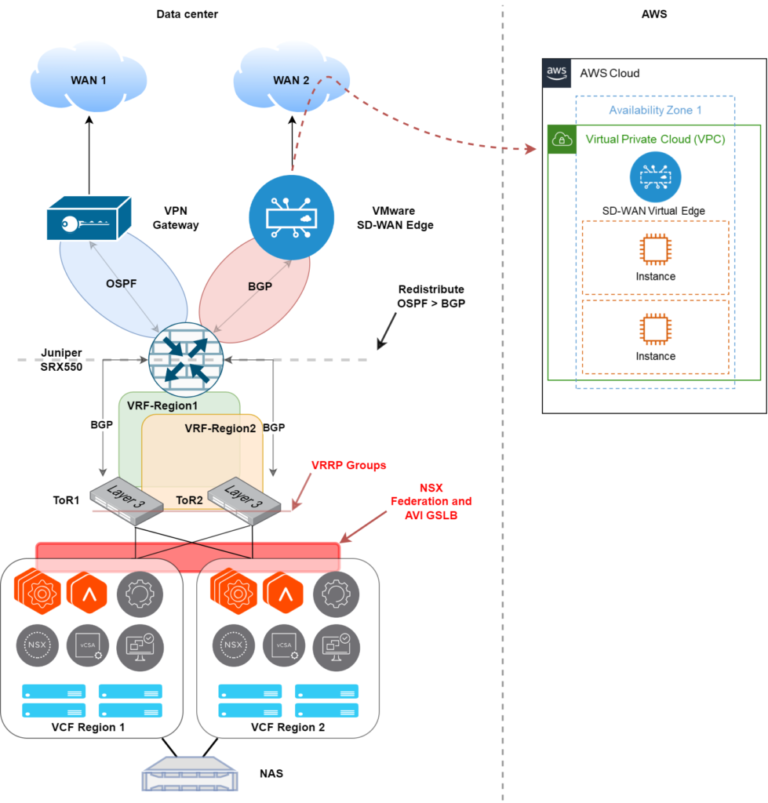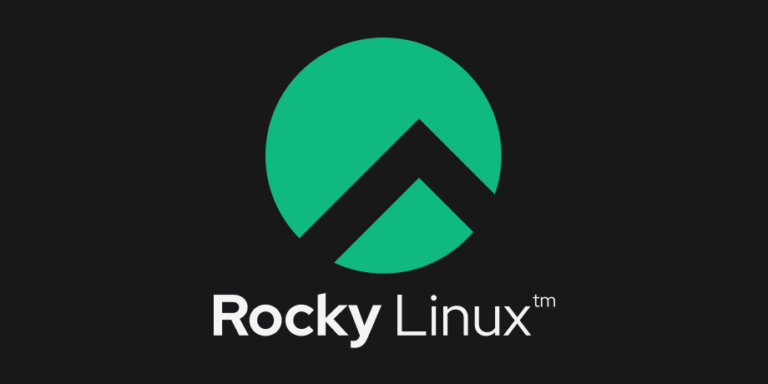Have you ever wondered what coding bootcamps are and how they differ from traditional education? Are you considering joining a coding bootcamp but unsure of the advantages and disadvantages?
In this comprehensive article, we will explore everything you need to know about coding bootcamps – from how to choose the right one to what to expect once you’re enrolled. We’ll also discuss the top coding bootcamps in the industry, available resources for learning coding, and tips on how to prepare for and excel in a coding bootcamp.
Whether you’re a beginner or looking to advance your coding skills, this article has got you covered!
Key Takeaways:
- Coding bootcamps offer a more intensive and hands-on learning experience compared to traditional education.
- When choosing a coding bootcamp, consider factors such as curriculum, teaching methods, and industry reputation.
- Aside from bootcamps, there are various resources available for learning coding, such as online courses, books, and coding communities.
What are Coding Bootcamps?
Coding Bootcamps are intensive training programs that focus on teaching programming skills and software engineering to individuals looking to kickstart their tech career.
These bootcamps typically span a few weeks to several months, offering a condensed and immersive learning experience. Codecademy, a prominent online learning platform, often collaborates with coding bootcamps to provide comprehensive courses in various programming languages like Python, Java, and JavaScript.
Participants also gain hands-on experience through projects, workshops, and practical exercises, preparing them for real-world challenges in the technology industry. Mentorship plays a crucial role in coding bootcamps, with experienced professionals guiding and supporting students throughout their learning journey.
How are Coding Bootcamps Different from Traditional Education?
Coding bootcamps offer a more specialized and focused approach to learning compared to traditional education, such as university degrees.
One of the key unique aspects of coding bootcamps is their emphasis on practical skills over theoretical knowledge. These bootcamps equip individuals with hands-on experience in coding languages, tools, and technologies directly relevant to industry demands. Industry relevance is a cornerstone of coding bootcamps, ensuring that graduates are job-ready upon completion. The intensive and immersive nature of bootcamps allows students to acquire essential skills in a shorter time frame than traditional academic programs. This time efficiency appeals to many individuals seeking swift career transitions in the tech industry.
What are the Advantages of Joining a Coding Bootcamp?
Joining a coding bootcamp provides advantages such as self-paced learning, structured curriculum, mentorship, and career-oriented training to become job-ready in the tech industry.
One of the notable benefits of enrolling in a coding bootcamp is the flexibility it offers through self-paced learning. This allows individuals to progress at their own speed, accommodating personal obligations and learning preferences.
Mentor support plays a crucial role in enhancing the educational experience. Experienced mentors guide and support students, offering insight, feedback, and industry knowledge to navigate the complexities of the tech field.
The industry-specific skills acquired through bootcamps are tailored towards career preparation, ensuring that graduates possess relevant and in-demand competencies that align with the requirements of the tech industry.
What are the Disadvantages of Joining a Coding Bootcamp?
Some disadvantages of coding bootcamps include the significant time commitment required, financial implications, and the potential lack of a traditional university degree.
While coding bootcamps offer an accelerated path to acquiring valuable skills, the intensive nature of these programs may not suit everyone’s schedule. Balancing bootcamp coursework with personal commitments and work can be challenging, requiring disciplined time management skills and the ability to prioritize tasks efficiently. Since most bootcamps are condensed into a few months, participants may feel overwhelmed by the rapid pace of learning, making it crucial to maintain a healthy work-life balance.
How to Choose the Right Coding Bootcamp?
Selecting the right coding bootcamp involves evaluating factors such as the curriculum, support services, tuition costs, and post-graduate job support.
When considering a coding bootcamp, one should look for a program curriculum that matches their desired career path and skill level.
Support services, such as mentorship, tutoring, and career counseling, play a crucial role in student success.
It’s also essential to weigh the tuition costs against the value of the education and services provided.
Investigating the bootcamp’s job placement services and success rates can give insight into future employment prospects after completing the program.
What Factors to Consider when Choosing a Coding Bootcamp?
When choosing a coding bootcamp, factors to consider include the language of instruction, community engagement, availability of job support, and visa assistance for international students.
Language requirements are crucial in ensuring effective learning, as proficiency in the language of instruction is essential for grasping complex coding concepts. Ideally, the bootcamp’s curriculum should align with your preferred programming language to maximize skill development.
Active community involvement fosters networking opportunities, collaborative learning, and a supportive environment for growth. Robust job placement assistance can significantly impact your career prospects post-bootcamp, so researching the success rates of alumni placements is essential.
What are the Top Coding Bootcamps in the Industry?
Leading coding bootcamps in the industry offer comprehensive programs that cater to various skill levels, including specialized tracks for those with Japanese language proficiency and support for multiple programming languages.
Renowned coding bootcamps such as General Assembly and Flatiron School focus on creating inclusive environments where individuals from diverse backgrounds can thrive in learning tech skills.
They provide language-specific offerings, such as JavaScript and Python courses, to help students develop a strong foundation in these widely-used languages.
These bootcamps prioritize support for a variety of programming languages, ensuring that learners can gain expertise in areas like Ruby on Rails, Java, and more, to enhance their career prospects in the tech industry.
What are the Resources Available for Learning Coding?
There are numerous resources available for learning coding, ranging from online courses and books to coding communities and tutorial videos.
”
Online platforms like Codecademy, Coursera, and Udemy offer interactive lessons and certifications in various programming languages.
Networking opportunities through events like hackathons and coding bootcamps provide hands-on experience and a chance to collaborate with other coders.
Project repositories such as GitHub host a plethora of open-source projects for practice and contribution.
Video tutorials on platforms like YouTube and Pluralsight cater to visual learners with step-by-step coding instructions.”
Online Coding Courses
Online coding courses cover a wide array of topics, from web development and JavaScript to Python programming, providing learners with flexible learning options.
One significant benefit of enrolling in online coding courses is the convenience they offer. Learners can access course materials anytime, anywhere, allowing them to study at their own pace.
Online courses often provide interactive exercises and projects that help students apply what they’ve learned in real-world scenarios. This hands-on approach enhances understanding and retention of coding concepts.
Participating in online coding courses allows individuals to connect with a global community of learners and professionals, fostering collaboration and networking opportunities. This exposure to diverse perspectives can broaden one’s understanding of coding practices and trends across different industries.
Online platforms such as Codecademy and Udemy offer a plethora of coding courses tailored to various skill levels and interests, making it easy for learners to find courses that align with their goals and aspirations.
Coding Books and eBooks
Coding books and eBooks are valuable educational resources that offer in-depth insights into technology, programming skills, and industry best practices.
Whether you are a beginner looking to grasp the fundamentals of coding or an experienced professional seeking to stay updated on the latest trends, these resources serve as comprehensive guides to enhance your technology education. By diving into the pages of coding books and eBooks, readers get the opportunity to develop their coding prowess, learn new languages, and refine their problem-solving abilities.
These educational materials play a crucial role in fostering skills development necessary for excelling in the tech industry. They provide practical examples, coding exercises, and real-world applications that help individuals master the intricacies of various programming languages and technologies.
Plus individual growth, coding books and eBooks contribute to the overall advancement of industry knowledge. They showcase best practices, innovative techniques, and case studies that enable readers to apply theoretical concepts in a practical setting, thereby bridging the gap between academic learning and professional application.
In today’s fast-paced digital landscape, staying ahead of the curve is paramount, and these resources act as a beacon of knowledge, give the power toing tech enthusiasts and professionals alike to thrive in the ever-evolving technological realm.
Coding Communities and Forums
Joining coding communities and forums provides opportunities to connect with industry professionals, access tech resources, and engage in collaborative projects.
Being part of coding communities not only helps individuals improve their coding skills but also offers a platform to network with like-minded individuals who share a passion for technology. These communities serve as a hub for sharing valuable resources such as coding tutorials, project ideas, and industry insights. Collaborating on projects within these communities can lead to new learning opportunities and innovative solutions through collective knowledge sharing.
Coding Tutorials and Videos
Coding tutorials and videos available on platforms like YouTube and Stack Overflow offer interactive learning experiences, supplemented by tech workshops and hands-on projects.
These online resources serve as valuable tools for individuals looking to enhance their coding skills in a self-paced and flexible manner. Watching tutorial videos not only helps in understanding complex concepts but also provides practical examples for better application. Platforms like YouTube and Stack Overflow foster a supportive community where learners can engage with professionals and fellow enthusiasts for guidance and collaboration.
How to Prepare for a Coding Bootcamp?
Preparing for a coding bootcamp involves honing your technical skills, acquiring relevant knowledge, and gearing up for potential technical interviews that may be part of the admission process.
To enhance your technical skills before the bootcamp, consider participating in coding challenges on platforms like LeetCode or HackerRank to practice problem-solving and coding under time constraints. Additionally, studying algorithms and data structures thoroughly is crucial as they form the foundation of most coding assessments. Building projects independently or collaborating on open-source projects can help you gain practical experience and showcase your coding abilities.
Regarding acquiring relevant knowledge, staying updated with the latest technologies and industry trends is essential. It’s beneficial to familiarize yourself with the specific programming languages, frameworks, and tools commonly used in the bootcamp curriculum. Engaging in online courses, tutorials, and reading technical blogs can broaden your understanding and expose you to new concepts.
What Skills and Knowledge should You Have Before Joining a Coding Bootcamp?
Ahead of joining a coding bootcamp, it is beneficial to have a foundational understanding of algorithms, familiarity with technologies like Node.js, and a passion for problem-solving.
This foundational knowledge forms the backbone of success in a coding bootcamp environment, where proficiency in algorithms acts as the cornerstone of problem-solving capabilities.
Embracing technologies such as Node.js can enhance one’s ability to develop dynamic web applications and server-side scripts efficiently.
A keen problem-solving aptitude is crucial for tackling coding challenges and debugging code effectively, making it essential for aspiring coders to sharpen their logical reasoning skills prior to bootcamp enrollment.
What Preparations can You Do to Excel in a Coding Bootcamp?
To excel in a coding bootcamp, aspiring students can prepare by working on portfolio projects, practicing for technical interviews, and researching potential career paths within the tech industry.
Project development is a crucial aspect of honing coding skills, as it allows students to apply their knowledge in practical scenarios and showcase their abilities to potential employers.
Interview practice is also vital; by simulating technical interviews, learners can increase their confidence, refine their problem-solving skills, and familiarize themselves with the kind of questions that may be asked during actual job interviews.
Exploring various career paths in tech provides individuals with a clearer understanding of the industry landscape, helping them align their skills and interests to pursue a rewarding and fulfilling profession.
What to Expect in a Coding Bootcamp?
Enrolling in a coding bootcamp entails following a structured schedule, engaging with a comprehensive curriculum, and navigating through challenges that promote skill development and growth.
During these intensive programs, participants delve into courses covering a wide array of topics ranging from web development to data science. The daily schedule often involves a mix of lectures, hands-on coding exercises, and collaborative projects, fostering a dynamic learning environment.
Students are encouraged to work on real-world projects, allowing them to apply the newly acquired knowledge to practical scenarios. Mentors and instructors play a crucial role in providing guidance and support, helping learners overcome hurdles and stay motivated.
Typical Schedule and Curriculum of a Coding Bootcamp
The typical schedule of a coding bootcamp includes mentorship sessions, accountability measures to track progress, and assessments to evaluate skill mastery and growth.
During a coding bootcamp, participants engage in regular sessions with experienced mentors who provide invaluable guidance, support, and feedback on their coding journey. These mentorship sessions play a crucial role in helping learners navigate challenges and stay on track towards their learning goals.
Alongside mentorship, accountability measures such as setting weekly goals, progress check-ins, and peer reviews help participants stay accountable for their learning and maintain a consistent learning pace. These measures not only enhance learning efficiency but also foster a sense of responsibility and discipline among learners.
Skill assessments at various stages of the program offer a structured way to evaluate the development of coding skills, identify areas for improvement, and measure overall progress. These assessments often include coding challenges, project reviews, and quizzes that enable both participants and mentors to gauge skill proficiency and set personalized learning targets.
Teaching Methods and Learning Environment in a Coding Bootcamp
Coding bootcamps employ diverse teaching methods and create immersive learning environments that simulate real-world tech career scenarios, providing job support and practical skills development.
In these educational settings, students can benefit from hands-on projects, collaborative learning experiences, and mentorship opportunities. The focus is not just on theoretical knowledge but on practical application, preparing individuals for the demands of the industry.
Some bootcamps also offer skill-building activities such as hackathons, coding challenges, and industry-specific projects to enhance students’ capabilities. Career assistance programs help graduates transition into the tech workforce smoothly by offering resume building, interview preparation, and networking opportunities.
Challenges and Tips for Surviving a Coding Bootcamp
Surviving a coding bootcamp requires dedication, resilience, and the ability to adapt to challenges, ultimately leading to personal and professional success in the tech industry.
When diving into the world of coding bootcamps, individuals often find themselves battling imposter syndrome, time management issues, and information overload. Fortunately, by setting clear goals, creating a structured study schedule, and seeking help from mentors or peers when stuck, these challenges can be navigated successfully.
Remember that setbacks are part of the journey, and staying committed to continuous learning and improvement is crucial for long-term success. Embrace the process, stay open to feedback, and keep pushing yourself beyond your comfort zone to reach greater heights in your tech career.
Frequently Asked Questions
What are coding bootcamps and why are they popular?
Coding bootcamps are short-term, intensive training programs designed to teach coding and other digital skills. They have become popular because they offer a quick and affordable way to learn in-demand tech skills and change careers.
Are there any prerequisites for joining a coding bootcamp?
While some coding bootcamps may require previous coding experience, many welcome beginners and offer introductory courses to help students build a strong foundation. It’s always best to check with the specific bootcamp for their requirements.
What kind of resources are typically included in coding bootcamps?
Coding bootcamps often provide a combination of lectures, hands-on exercises, project-based learning, and access to online resources and support. Some may also offer mentorship or job placement assistance.
How long do coding bootcamps typically last?
Coding bootcamps can range from a few weeks to several months, depending on the program. Some may offer part-time or self-paced options, while others may require full-time commitment.
Are coding bootcamps worth the time and money?
It depends on individual circumstances and goals. Coding bootcamps can be a great option for those looking to quickly gain skills and enter the tech industry. However, it’s important to research and choose a reputable bootcamp with high job placement rates.
Are there any alternatives to coding bootcamps for learning coding skills?
Yes, there are many online resources such as coding tutorials, YouTube channels, and online courses that offer a more self-paced and affordable option for learning coding skills. However, these may require more self-discipline and determination.




